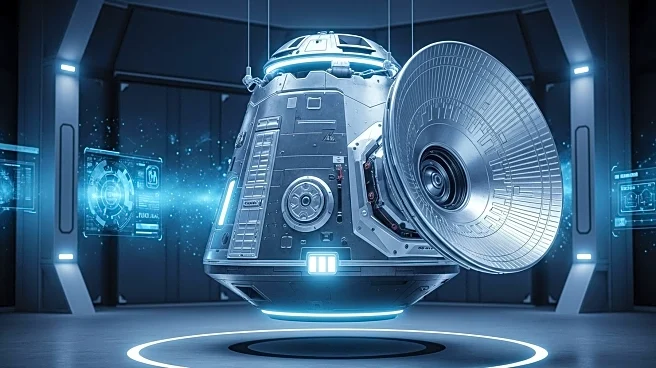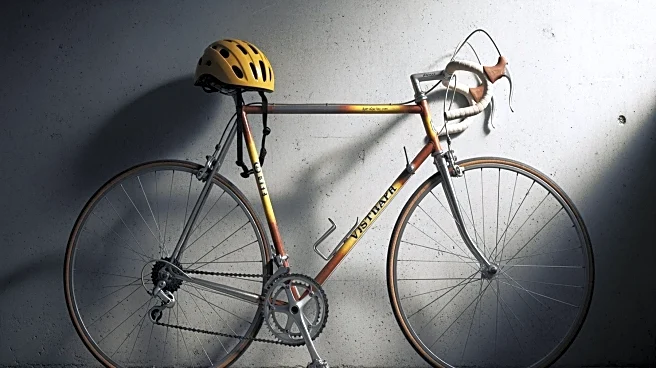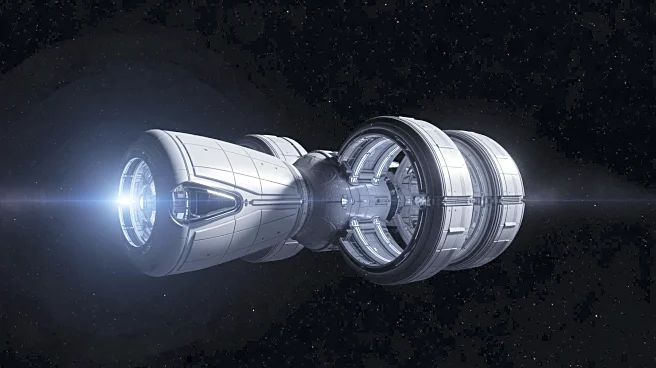What's Happening?
Orbital Paradigm, a Spanish startup, is set to conduct its first test flight of a reusable reentry capsule named Kestrel Initial Demonstrator (KID). The capsule, developed in under a year, will carry payloads from various partners and test guidance systems and thermal protection materials during its brief mission. The capsule will remain attached to the upper stage for a few hours before deploying and reentering over the South Pacific. This mission marks Orbital Paradigm's entry into the reentry vehicle market, with plans for future missions and a full-scale capsule by 2027.
Why It's Important?
Orbital Paradigm's entry into the reentry vehicle market represents a growing interest in reusable spacecraft technology, which can significantly reduce costs and increase the frequency of space missions. The successful demonstration of the KID capsule could position Orbital Paradigm as a competitive player in the industry, potentially attracting partnerships and investments. This development also highlights the increasing diversity of companies pursuing reentry technologies, which could lead to innovations in space logistics and transportation, benefiting various sectors including research and commercial payload delivery.
What's Next?
Following the KID mission, Orbital Paradigm plans to launch a larger capsule next year, incorporating a propulsion system developed by another Spanish startup. The company aims to conduct monthly missions by the early 2030s, with the full-scale Kestrel capsule ready by 2027. As Orbital Paradigm progresses, it may seek additional funding and partnerships to support its ambitious plans. The company's focus on reusable technology and diverse customer base could lead to significant advancements in space transportation, influencing industry standards and practices.









